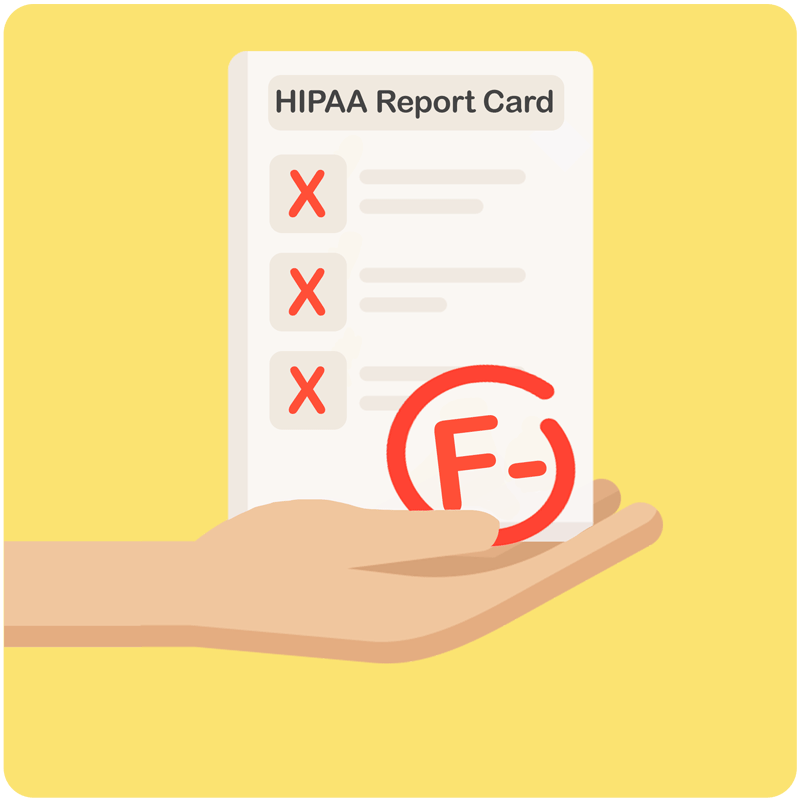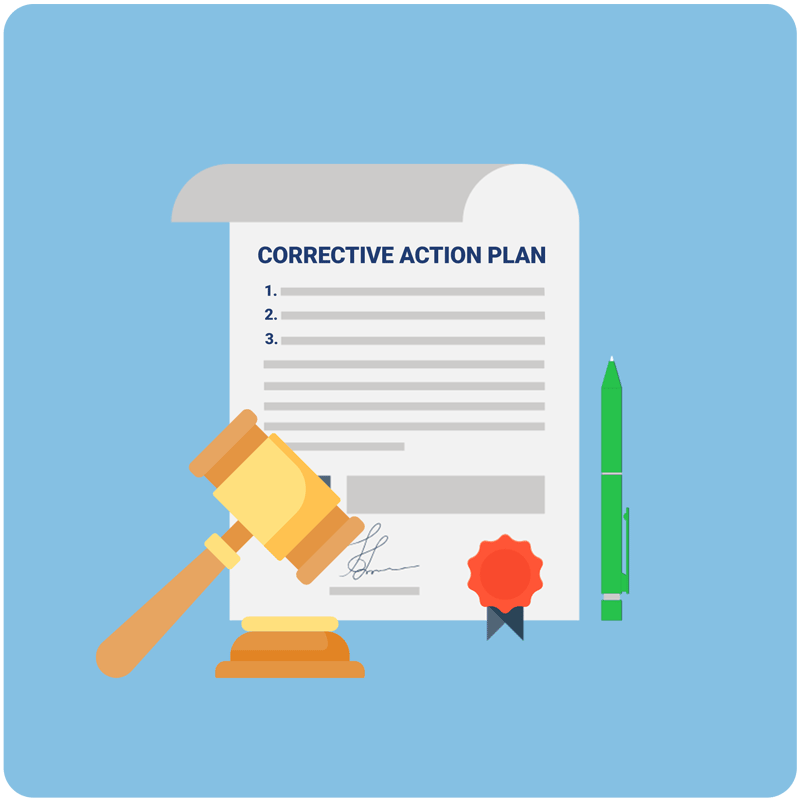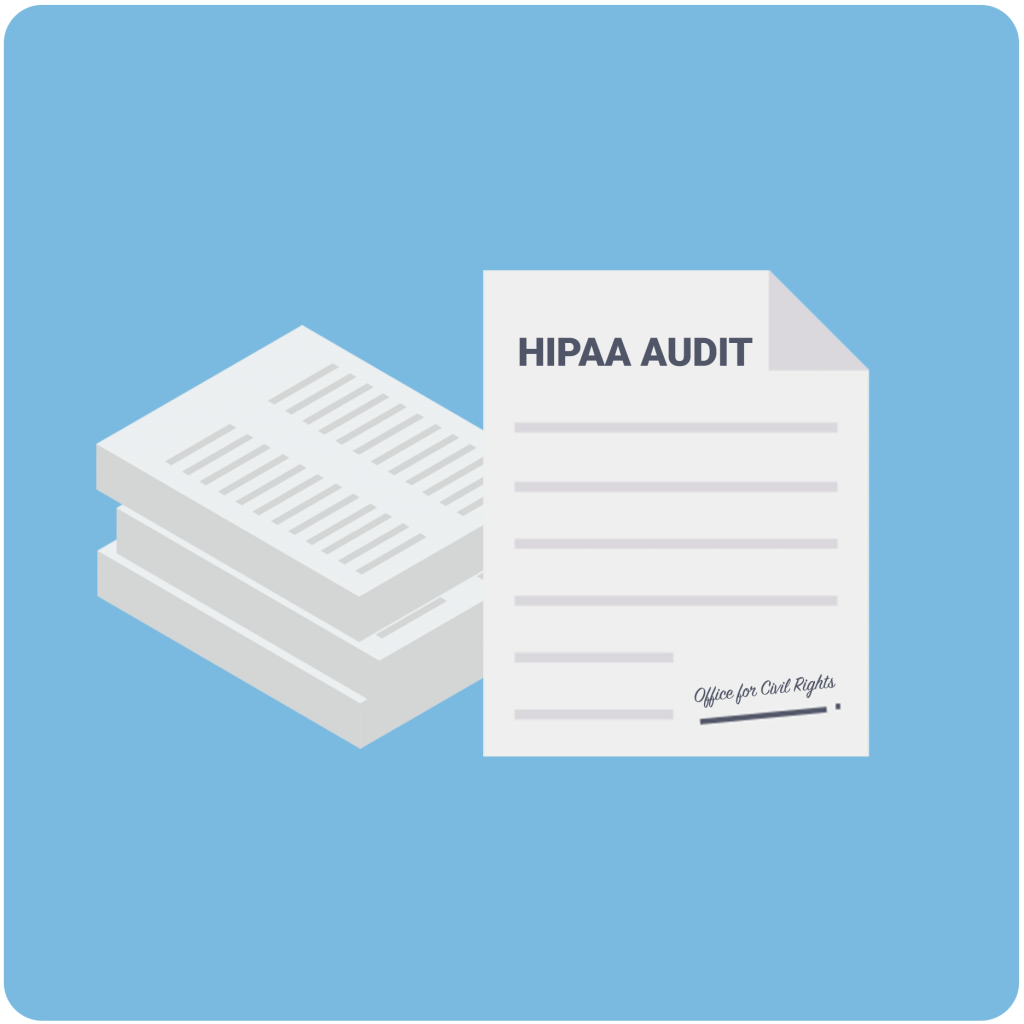September 21, 2022 Boom! Pow! Bang! Three dental practices were sacked yesterday, resulting in nasty bruises and a loss of yards on the play. After heading into the locker room and studying some film, they recognized there were some lessons to be learned in the OCR’s HIPAA Right of Access playbook. The U.S. Department of Health and Human Services (HHS) Office for Civil Rights (OCR) announced the completion of three investigations in its Health Insurance Portability and Accountability Act (HIPAA) Right of Access Initiative. The OCR’s HIPAA Right of Access Initiative started in 2019 to ensure patients receive their records in a timely and costly manner. With three actions in one day and a total of 20 just this year, we are seeing a 42% increase year over year in the enforcement of the Privacy Rule. The OCR’s effort has now raised the total to 41 Right of Access actions across the span of 3 years, setting a strong example for practices across the country on the importance of maintaining compliance. OCR Director, Melanie Fontes Rainer, states, “Patients have a fundamental right under HIPAA to receive their requested medical records, in most cases, within 30 days. I hope that these actions send the message of compliance so that patients do not have to file a complaint with OCR to have their medical records requests fulfilled.” Here is an instant replay of when three dental practices crossed the line of scrimmage: The first dental practice had a delay of game penalty after failing to provide timely access to their former patient’s records. The former patient didn’t receive a complete copy of their records until October 2020, five months after they filed a complaint back in May 2020. This resulted in a $30,000 settlement and the implementation of a Corrective Action Plan. The second dental practice got a 15-yard penalty for not providing a patient with a copy of her records in a timely or costly manner. The practice refused to provide the records because the patient wouldn’t pay the $170 copying fee. That’s not a fair catch! After the OCR got involved, the dental practice had to cough up $80,000 in settlement and adopt a Corrective Action Plan. Maybe they should’ve read the HIPAA Rule book! The starting running back fumbled the ball when this practice failed to provide a mother and her son with copies of their PHI until after the play clock hit zero. After multiple requests and eight months of waiting, she finally got the medical records in her hands. The dental practice had to fork over $25,000 and implement a Corrective Action Plan. After watching the game footage, there is a clear solution here! Make sure your practice provides patients with timely and costly access to their medical records. Six dental practices have been sacked so far in 2022, which means we have already witnessed a 600% increase solely in the dental space compared to the 2021 season. That is not a statistic you can ignore! You could be next, so we encourage you to make sure you have the right compliance measures in place to avoid these large fines. Is your game plan ready?
Latest HIPAA Audit Industry Report
December 18, 2020 End of year report cards are in (or at least they are for covered entities) and the HIPAA compliance grades the Office for Civil Rights (OCR) & Department of Health and Human Services (HHS) just handed out are not ones to write home about. Just yesterday, the HHS released their latest HIPAA Audits Industry Report grading providers and business associates’ on their level of compliance with HIPAA regulations. The report evaluated audit results from 166 covered entities and 41 business associates, focusing specifically on compliance with the Notice of Privacy Practices, patient records access, breach notifications timeliness and content, the Security Risk Analysis, and appropriate risk management programs. While the full report is pretty lengthy, we’ve compiled some of the top takeaways from these latest results: So what does this data tell us? In some ways, nothing new – all of the areas audited have factored heavily into recent OCR enforcement activity, and highlight the same trends we’ve seen all year. If not part of recent enforcement, these areas factor into the recent proposal to modify the HIPAA Privacy Rule, including proposed adjustments to the Notice of Privacy Practices. “The audit results confirm the wisdom of OCR’s increased enforcement focus on hacking and OCR’s Right of Access initiative,” said OCR Director Roger Severino in addition to the latest report, “we will continue our HIPAA enforcement initiatives until health care entities get serious about identifying security risks to health information in their custody and fulfilling their duty to provide patients with timely and reasonable, cost-based access to their medical records.” What NEW information can we take away from these results? Organizations are STILL. NOT. COMPLIANT. Many of the covered entities or business associates audited produced what they thought was sufficient evidence, but did not meet actual HIPAA requirements. Some weren’t even close – when asked to produce an SRA, entities provided irrelevant documents like a patient’s insurance prescription coverage and rights; a document discussing pharmacy fraud, waste and abuse; and a conflict of interest and code of conduct employee sign-off page – none of which are even semi-related to an actual SRA. If your practice wants to get a slightly better HIPAA grade than the ones in this recent audit, ensuring you have the PROPER documentation in place, and meet ALL HIPAA requirements is key. If HIPAA isn’t your best subject, a software solution like Abyde is the tutor you’ve been needing to help walk you through the process to get an A+ (plus avoid hefty HIPAA fines, stress over your HIPAA program, and general unhappiness).
What is a ‘Corrective Action Plan’?
September 9, 2020 HIPAA Settlements are more than just $$$ If you’re like most practices, you might just see $$$ when a HIPAA fine makes the news. And yeah – million dollar fines are no joke. But a HIPAA violation settlement is more than just a dollar sign, and often includes something called a ‘corrective action plan’. This corrective action plan, or CAP, is basically equivalent to ‘you messed up, here’s two years of administrative paperwork to fix your issues and think about what you’ve done.’ Yeah, you read that right – two years. If you thought paying a fine and putting it behind you was the extent of the bad news, we’re here to tell you why a CAP is just as important if slapped with a HIPAA violation. ALL the Paperwork The goal of a CAP is to correct the issues that caused the HIPAA violation in the first place. However, CAP requirements aren’t just a simple ‘do this next time’ and involve quite a bit of paperwork. Over the course of the designated time frame, one to typically two years, practices are required to: Lets face it, no one likes paperwork (even hearing that word makes us cringe). Having to complete what’s required in a CAP is often far more paperwork than maintaining a regular HIPAA compliance program would be – another reason to be compliant before an incident occurs. Even More Consequences Failing to complete a corrective action plan within the designated time frame can void the initial settlement and can leave a practice open to additional fines and penalties – yikes. It may just be paperwork, but the OCR takes it seriously, and leaves practice’s having to juggle a CAP on top of their already full plate of patient care, regular operations, and reputation management after landing in the news for a HIPAA violation. So, who doesn’t want to be stuck with a mound of paperwork and the OCR breathing down your neck? (We’re raising our hand – both hands actually.) Getting ahead of violations by completing the SRA and HIPAA program requirements before a breach, complaint or audit will save your practice the pain of a CAP and help avoid a violation in the first place. After all, if you have all the right policies, SRA, and risk management plan in place before a breach you’ve already got OCR requirements down – but with less time spent, on your own schedule, and without the OCR looking over your shoulder.
Top 6 Ways to Be Prepared for a HIPAA Audit
August 14, 2020 Let’s be real – there’s probably a few things in life we all have an“Oh, it won’t happen to me” mentality about. For many medical professionals, that may be exactly how you feel about HIPAA audits – yet HIPAA investigations are becoming more common than you might think. While the odds of facing a totally random HIPAA audit might not be high, they increase significantly when you factor in additional investigation triggers like data breaches, cyber attacks, and patient complaints- none of which a medical practice is immune to. Proactively preparing for anything that might be thrown your way is imperative for your practice to have the ability to handle a HIPAA audit without the consequence of a hefty violation. Here are the top 6 things you should have in place BEFORE a breach, complaint or audit investigation occurs: 1. Security Risk Analysis The first thing the OCR looks for upon investigation is a properly documented and up to date Security Risk Analysis (SRA). This shows that you’ve assessed your practice operations and identified any vulnerabilities – BEFORE an audit occurs. While it’s the first step of HIPAA compliance, only 17% of practices audited by the OCR met this requirement. 2. Practice-Specific Policies & Procedures Proper documentation is key for all aspects of your compliance program including your practice specific HIPAA policies and procedures. These policies and procedures serve as the guidelines for how protected health information (PHI) should be handled within your practice and the proper documentation is necessary to prove the expectations and standards you have set for your organization. 3. Disaster Recovery Plan Disasters happen, most of the time without warning. Having a disaster recovery plan in place is important to ensuring continuity of patient care and continued access to important medical records. As the saying goes, if you fail to plan, you plan to fail. 4. Implement Proper Administrative, Technical and Physical Safeguards Securing all forms of PHI with the necessary safeguards already implemented within your practice is essential to successfully meeting HIPAA requirements – and ultimately protecting your patients. 5. Staff HIPAA Training Properly train your workforce on all HIPAA privacy and security policies and procedures. This training should be ongoing to ensure that staff is staying up to date with any changes to HIPAA regulations or practice operations. 6. Business Associate Agreements It’s important to be on the same page with everyone that has access to your patient’s secure information. Implementing the proper business associate agreements (BAAs) with all third party vendors that could potentially access PHI ensures patient data is secure while also offsetting liability to business associates should they be the cause of a data breach. There’s a lot that goes into your HIPAA program, even more than the top 6 items listed here, which is why it’s all the more important to have a true culture of compliance in place and a complete HIPAA program to prevent and minimize threats to your patient’s data.
Tax Audits vs HIPAA Audits | What You Need to Know
February 21, 2020 When you think of the most wonderful time of the year – tax season probably isn’t the first thing that comes to mind. But even though the filing process can be a bit daunting, it’s the lesser of two evils when compared to the IRS audit that could result from not submitting anything at all. So while you file your taxes this time every year in hopes of not having to face the IRS this tax season – what are you doing to prepare for a HIPAA audit? As long as you do everything right, the changes of the government showing up on your doorstep are pretty slim. In fact, considering only about 0.5% of all tax returns filed are actually audited – you have a 6% better chance of becoming a millionaire than you do facing the IRS. But despite the unlikely odds, we’re all still focused on staying off the government’s radar by filing each and every year. This better safe than sorry mentality should also apply to the precautions taken to avoid a HIPAA audit, but for many practices, it doesn’t hold the same weight. Over the past few years, the Office for Civil Rights has investigated more HIPAA complaints and ran more random practice audits than ever before, bringing the total amount of HIPAA fines to over $19 million – just between 2020-2021 alone. So why have we seen such a major increase lately? With technology use in healthcare on the rise and changes in government standards and patient needs, it is easier for Protected Health Information (PHI) to be accessed by those with malicious intent and seemingly harder for practices to provide patients with their own PHI when requested. So just as we all go through the tax filing process – ensuring that you have a complete HIPAA program is pretty similar: So why don’t practices pay more attention to HIPAA, like they do their taxes? It all comes down to the lack of education on what HIPAA compliance really entails. The reality for many practices is that, because of misinformation or lack of education, the proper safeguards are never put in place and data breaches are growing more and more common. The worst part? A HIPAA fine could cost your practice, and has cost many others, millions of dollars in addition to time-consuming administrative burdens. And on top of that, unlike late payment fees or penalties on taxes, once a breach occurs under HIPAA there is no going back – and no way to reduce the government’s levied fines. Our takeaway? You shouldn’t just be preparing for tax season – HIPAA audit season has proven to be a year-round occurrence that deserves just as much of a priority as filing taxes does.




